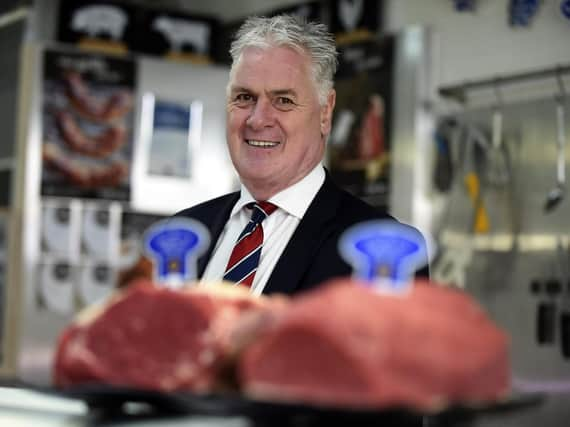Readers' letters: Scots farmers at risk in Aussie trade deal


Scots farmers at risk in Aussie trade deal
Tim Jackson, who dismisses Kenny MacAskill’s concerns about the UK / Australian trade deal (letters, 10 June), should at least listen to the president of NFU Scotland Martin Kennedy.
He told Good Morning Britain that farmers feel a ‘total betrayal’, and NFU president Minette Batters said the zero-tariff proposals would be ‘unbearable’.
Advertisement
Hide AdAdvertisement
Hide AdNFU Scotland chief executive Scott Walker also warned that this deal, with no tariffs or quotas on sensitive products, will set a precedent that all other countries looking for free access to the UK market in the future will be desperate to replicate and that no consultation has been had with NFU Scotland on such a proposal.
SNP MSP Jim Fairlie, a farmer himself, didn’t hold back when he compared the Westminster deal to the decimation of Scottish farming in the late 1800s after a trade deal with the US and Canada.
Scotland didn’t vote for Brexit, which has cost 4.9 per cent of GDP in exchange for this trade deal worth 0.02percent in order that we can have poorer quality cheap imports.
Apart from all the genuine concerns about animal welfare and the use of antibiotics, there is also the problem of global warming through unnecessary food miles and another reason to always buy clearly packaged, high quality Scottish produce whenever you can.
Mary Thomas, Watson Crescent, Edinburgh.
Let’s appreciate our hospitality staff
Advertisement
Hide AdAdvertisement
Hide AdThe recent complaints by hotel and restaurant proprietors about not being able to find chefs to hire is largely falling on deaf ears.
For generations all hotel workers, but particularly that highly skilled employee 'the chef' has been under-paid and overworked.They have been exploited and many have left catering in disgust.
It’s sad that someone who has gone to a college or completed an apprenticeship should have been put in such a position that they leave the industry altogether because wages/salaries are poor and hours long and unsociable.
The situation is particularly bad in Britain, I think partially due to the greed of some employers and the general attitude towards people who provide a service like cooking or waiting. They are often looked down on.
Advertisement
Hide AdAdvertisement
Hide AdI have never understood why anybody who gets someone to cook for them, a job of trust, would look down on them.
Hoteliers, restaurateurs the answer now is to right past wrongs. Pay good wages, reduce the hours and treat the chef who is an artist with respect and kindness, then you will get them to work for you!
Mike Twaddle, retired international head chef, Glenrothes.
Time to ban the live export of animals
The live-export trade is a stain on our society. Every year, nearly 2 billion cows, pigs, sheep, goats, and other animals are crammed onto ships for days or even weeks.
Their suffering is compounded when accidents occur and ships are delayed, catch fire or sink. In November 2019, a ship transporting 14,600 sheep capsized shortly after leaving port. In spite of many days of rescue attempts, only 180 sheep survived.
Advertisement
Hide AdAdvertisement
Hide AdAnimals raised for their flesh and skin already endure miserable lives. The least we can do is spare them the unnecessary trauma of an arduous journey overseas before they’re killed.
Today is Ban Live Exports International Awareness Day – let’s use this occasion to contact policymakers and demand that they end this shameful trade.
Sascha Camilli, PETA, All Saints Street, London N1.
Comment Guidelines
National World encourages reader discussion on our stories. User feedback, insights and back-and-forth exchanges add a rich layer of context to reporting. Please review our Community Guidelines before commenting.